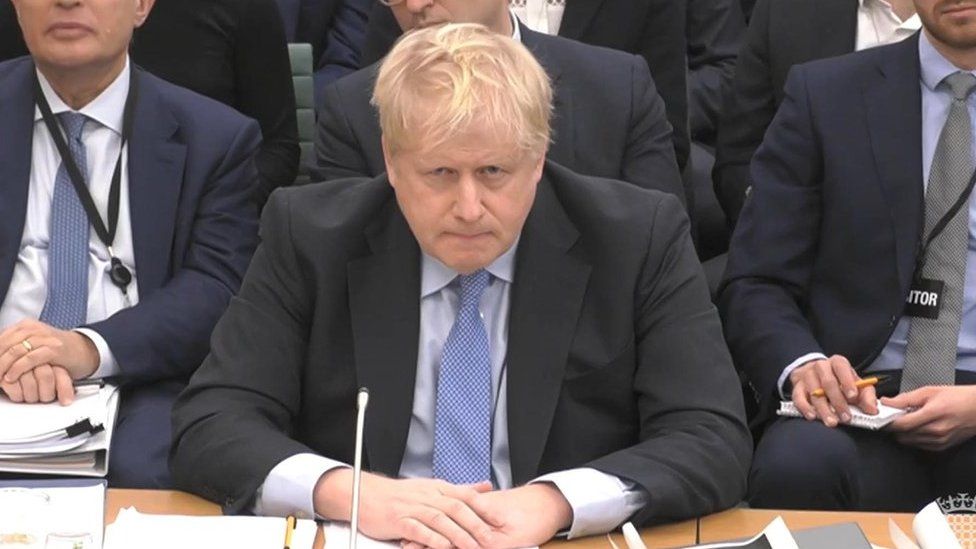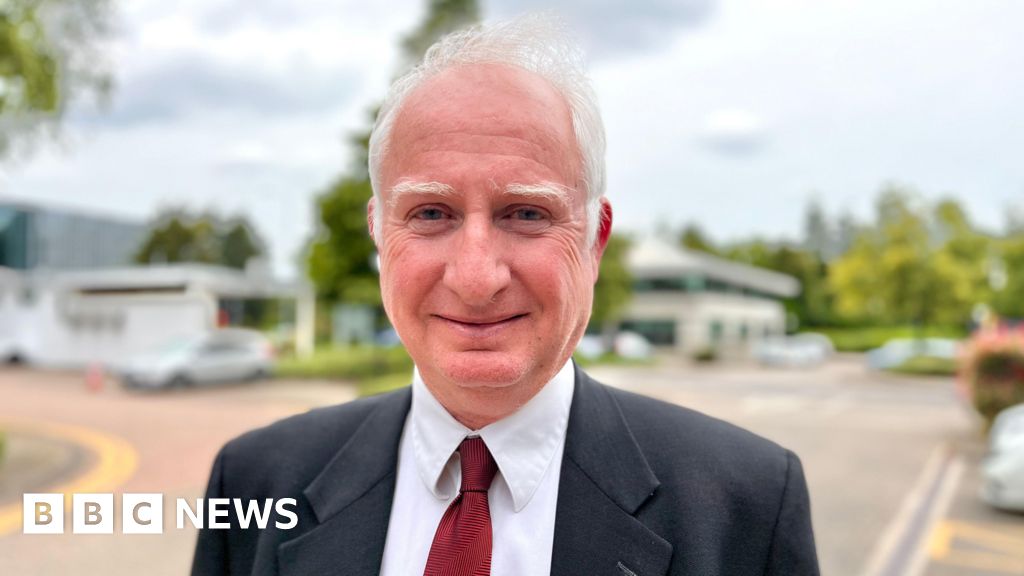ARTICLE AD BOX
 Image source, House of Commons/UK Parliament
Image source, House of Commons/UK Parliament
By Joshua Nevett
BBC Politics
Boris Johnson should pay back the public money used to cover a £245,000 bill for his lawyers during the Partygate inquiry, opposition MPs say.
An inquiry by MPs found the former prime minister had deliberately misled Parliament over lockdown parties.
The top lawyers defending Mr Johnson were paid for with taxpayer funds.
Labour says Prime Minister Rishi Sunak should demand Mr Johnson "pays back every penny" of public money used to fund his legal defence.
Labour's deputy leader, Angela Rayner, said Mr Sunak should not have "propped him up as long as he has".
Ms Rayner said the British public should not be made to pay for Mr Johnson's lawyers because he "hasn't got a defence", adding "he's bang to rights".
Mr Johnson's spokesperson has been contacted for a comment.
The Liberal Democrats have urged Mr Sunak to "do the decent thing and force Johnson to pay the bill himself".
"It's frankly unbelievable that hardworking taxpayers are being left to foot the bill for Boris Johnson's shameful antics," the party's Cabinet Office spokesperson, Christine Jardine, said.
The SNP's leader in Westminster, Stephen Flynn, said: "The legal costs, which the public have paid for, need to be recouped from Mr Johnson."
The inquiry by the Privileges Committee was launched last April, after opposition parties accused Mr Johnson of misleading MPs about gatherings in government buildings during Covid-19 lockdowns.
In an unprecedented decision, the committee found Mr Johnson had committed repeated contempts of Parliament with his Partygate denials.
In its conclusions, the committee said criticisms of the inquiry in opinions submitted by Mr Johnson's legal advisers were "without merit".
Mr Johnson said the inquiry amounted to a "political assassination", and branded the committee's findings "deranged".
Elusive precedent
The Cabinet Office made the decision to cover Mr Johnson's legal costs for the inquiry last year, when he was still prime minister.
The government has sought to justify the decision by claiming there is a precedent for supporting former ministers with legal representation.
But the government has not been able to name a single example of a former minister receiving taxpayer-funded legal support for a parliamentary inquiry.
The BBC has spoken to two former ministers who were investigated by MPs for misleading Parliament and were not given legal support.
The former Labour MP and transport secretary, Stephen Byers, was not offered legal support when he faced a four-month inquiry in 2005.
Nor was the former Labour MP and paymaster general, Geoffrey Robinson, who was found to have "inadvertently" misled MPs in 2001.
In a response to a parliamentary question this week, Cabinet Office minister Jeremy Quin defended the decision to pay Mr Johnson's legal costs.
He said the principle "can also be applied to parliamentary inquiries, where it relates to one's conduct as minister of the Crown".
But Mr Quin provided no examples of former ministers having their legal bills covered for parliamentary inquiries.
Watch: Key moments from Boris Johnson's Partygate grilling
The MP who submitted the question, Labour's Karl Turner, said that the Cabinet Office had "created a precedent" with the decision to fund Mr Johnson's legal defence.
This meant there was now a two-tier system whereby ministers and former ministers receive legal support to fight parliamentary inquiries, and backbench MPs do not, he added.
"We cannot have a system that unfairly advantages one member as against another member, in terms of having their excessively large legal bills covered by the taxpayer," Mr Turner said.
"Mr Johnson is a multi-millionaire if he wants to instruct the country's leading public lawyers and solicitors then let him pay for it."
Last month, the contract to hire Mr Johnson's legal team was extended for the third time and increased in value, from £222,000 to £245,000.
The Treasury did not sign off the decision to use public money to pay the bill, but has insisted its approval was not required for all spending decisions.
The National Audit Office (NAO), which scrutinises government spending, has been examining the decision to cover Mr Johnson's legal costs during the inquiry.

 1 year ago
41
1 year ago
41








 English (US)
English (US)